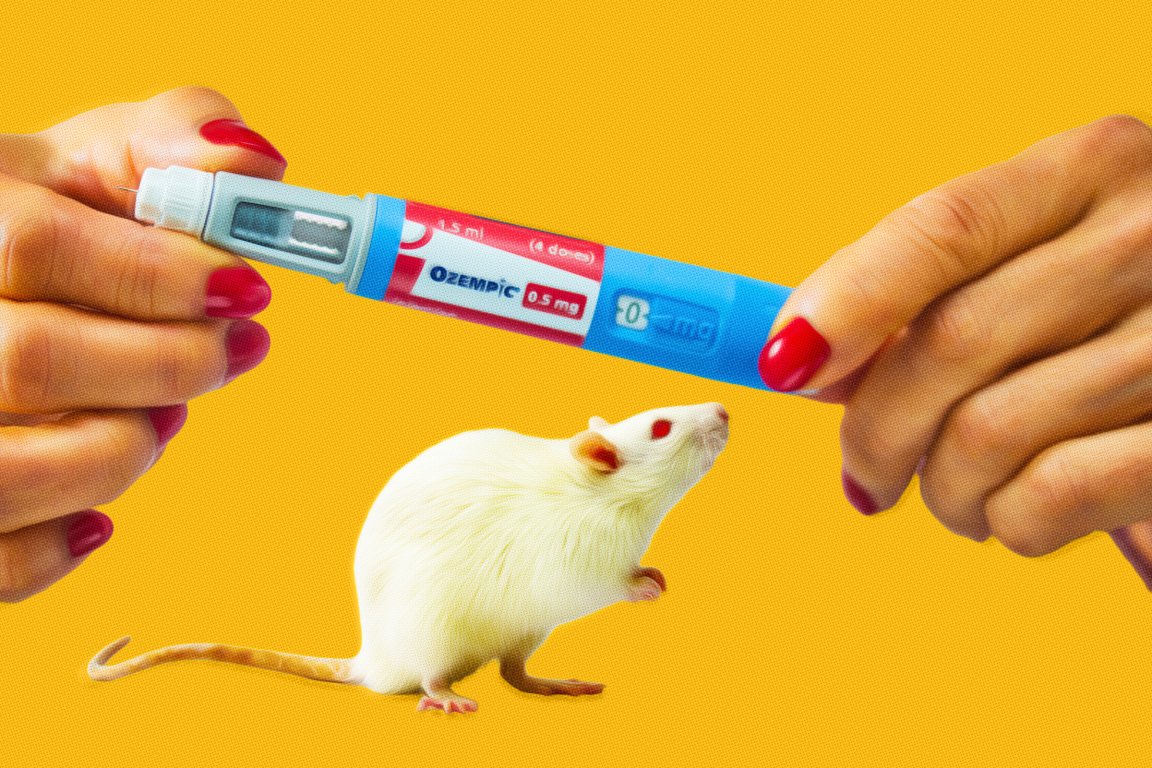
A new study published in the journal Cell Metabolism strongly suggests that low doses of weight loss drugs like Ozempic and Zepbound can counteract aging in middle-aged mice, adding to the growing suspicion that these medications might also increase human longevity.
The team of researchers, led by the Chinese University of Hong Kong, set out to develop possible methods to counteract aging by focusing on the effectiveness of exenatide, a type of glucagon-like peptide-1 receptor agonist or GLP-1RA that’s similar to Ozempic; the medication is used to control blood sugar in diabetics by activating the protein GLP-1 receptor, which increases insulin in the blood stream and lessens appetite.
They took 18 middle aged mice, about 10 to 14 months old, and divided them into two groups: one cohort received low-dose injections of exenatide for 30 weeks starting at the age of 11 months, and another cohort simply received a saline solution. They also observed a control group of 10 young mice, three months old, and injected them with the saline solution for four weeks, while another nine young mice received exenatide.
They then put all the mice, both young and older, through a battery of physical and cognitive tests to see the effects of aging and the difference that exenatide could make in their bodies.
While there wasn’t much difference in cognitive level between the two groups of middle aged mice, the cohort that received the saline solution were physically weaker while tissues from their bodies showed signs of aging at the molecular level, such as gene expression and metabolites like lipids and amino acids.
By contrast, middle-aged mice that received low doses of exenatide “demonstrated enhancements” in physical strength and endurance, while tissue from various parts of their bodies appeared younger; basically the impact of injecting exenatide was found throughout the body of the seemingly ageless middle aged mice. Meanwhile, younger mice that received exenatide didn’t seem to have much changes to their bodies.
“Taken together, these findings provided compelling evidence that the functional benefits observed in aged mice following long-term GLP-1RA treatment are closely linked to counteraction of aging at the transcriptomic, epigenetic, and metabolomic levels in body-wide tissue organs,” the paper reads.
The study adds to a growing body of evidence that drugs that target the GLP-1 receptor can treat a whole plethora of bodily ills, from cardiovascular issues to Alzheimer’s disease — and ultimately perhaps even the curse of growing older and weaker.
“Prediction: Yes, I think maybe we’ll all be micro dosing GLP1 in a decade,” wrote Derek Thompson, a contributing writer for The Atlantic, on X.
More on weight loss drugs: Huge Study Finds Constellation of Health Benefits for Ozempic Beyond Weight Loss